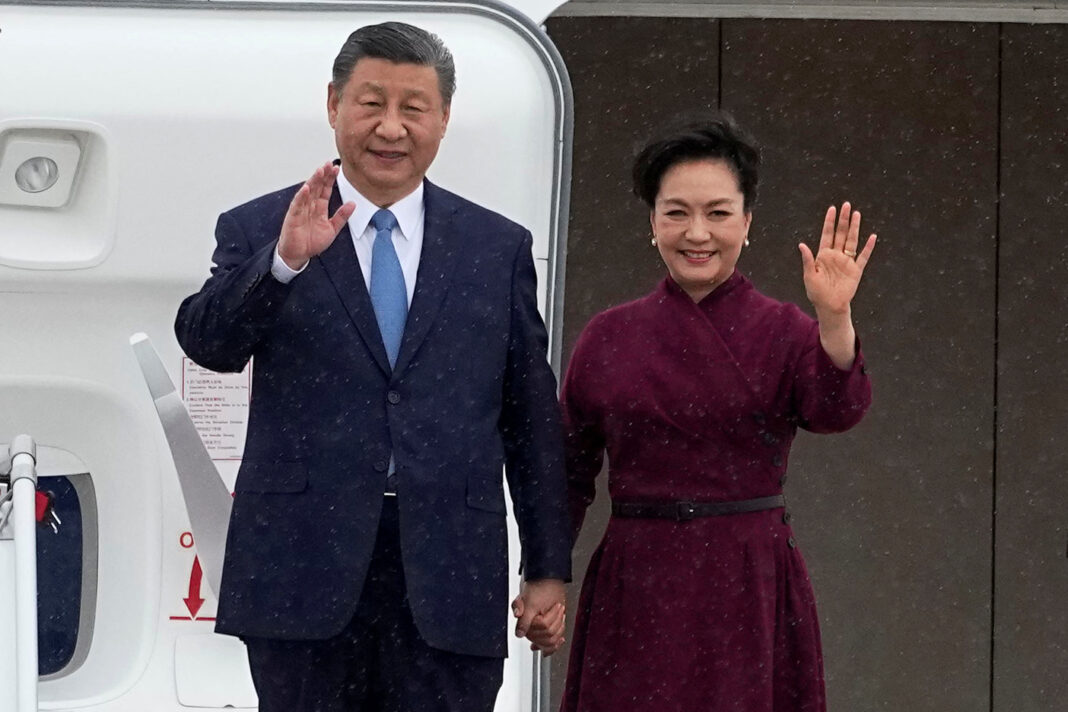Xi Jinping’s trip to Europe begins in Paris, where he returns after 5 years. Ursula von der Leyen will participate in the French talks, invited by Macron also to show European unity on the thorniest issues, such as trade.
Xi Jinping returns to Europe. Before the Chinese president set foot in Paris on the afternoon of Sunday 5 May, more than five years had passed since his last visit. In the meantime, everything has really changed.
Arriving at Orly airport in the French capital, Xi was welcomed by Prime Minister Gabriel Attal. The meeting with President Emmanuel Macron is scheduled for Monday 6 May, useful to celebrate the 60 years of the start of diplomatic relations between France and the People’s Republic of China. In the morning, the two leaders will also be joined by Ursula von der Leyen.
In fact, as already happened in April 2024, Macron asked the president of the European Commission to participate in talks with Xi. A way to show European unity, but according to some malicious people also a strategy to leave it up to her to face the most uncomfortable issues. It is enough to remember the different reception given to the two last year to understand how Beijing perceives or at least describes the two figures.
Several controversial issues will weigh on the table of the trilateral meeting. First of all, trade. The imminent closure of the European Union investigation into alleged state subsidies to private companies could lead to the introduction of new duties on imports of Chinese electric cars to the Old Continent.
Germany is more sceptical, as demonstrated by Chancellor Olaf Scholz’s recent trip to China in the company of managers of the large German car manufacturers. France, however, appears more convinced. Beijing, not surprisingly, responded to the possibility of tariffs on its electric vehicles with duties on the import of European brandy, which in almost all cases comes from Paris.
It’s not all. The EU has in fact targeted other sectors of the Chinese green technology industry, from batteries to solar panels. There is also no shortage of clutches on Nuctech’s medical equipment and safety devices. European criticism of excess Chinese production is also a source of contention, with fears of the introduction of products capable of distorting global prices. On the other hand, Beijing contests the “politicization” of trade relations and the “risk reduction” strategy which it considers a sort of “disguised decoupling”.
From the afternoon onwards, however, the climate should relax. After an official welcoming ceremony for the Invalides, there will be a bilateral meeting between Xi and Macron. It will be discussed on the basis of the joint document signed last year during the visit of the French president, which for Beijing symbolizes a model of “peaceful coexistence and win-win cooperation” between countries with different systems. In short, what it pursues with all Western countries.
Afterwards, there will be the state dinner at the Elysée. Then on Tuesday Macron will accompany Xi on a more “personal” stage, on the Tourmalet in the Pyrenees region. The French president spent a lot of time here during his childhood. It is here that Macron will seek a more direct and intimate dialogue with Xi, including on the war in Ukraine. The same thing happened in reverse last year, so Xi had unusually abandoned Beijing to accompany Macron to Guangzhou.
The French president is seeking Chinese help to obtain a truce during next summer’s Olympics, which will take place in Paris. “It would be a strong message for the whole world,” Macron said in an interview with French newspaper La Tribune. Xi will reiterate his willingness to support a path of peace, which for Beijing, however, passes through dialogue with Vladimir Putin and respect for Russia’s “legitimate security concerns”.
Whatever happens, Xi has prepared two more stages where any criticism will give way to praise. Just look at how Serbian President Aleksandar Vucic is preparing for his arrival, having explained in recent days how the Chinese president should be listened to more by the West because he is able “to stop some wars and establish a lasting peace”.
In Serbia, Xi will arrive on the days of the 25th anniversary of the NATO bombing of the Chinese embassy in Belgrade. It was a mistake, but from the Serbian capital the Chinese president could more or less explicitly criticize NATO. A way to identify the alleged culprits of the “fuel on the fire” of international conflicts.
In Hungary, however, Xi will be able to meet another non-aligned leader such as Viktor Orban. Together with him he will talk about the Belgrade-Budapest railway line, one of the flagship European projects of the Belt and Road Initiative. But he should also inaugurate a Great Wall Motors factory, one of the Chinese electric car manufacturers.
Not long after returning to Beijing, Xi will then receive Russian President Vladimir Putin for the third time in just over two years. Confirming a partnership that has not yet been discussed.




